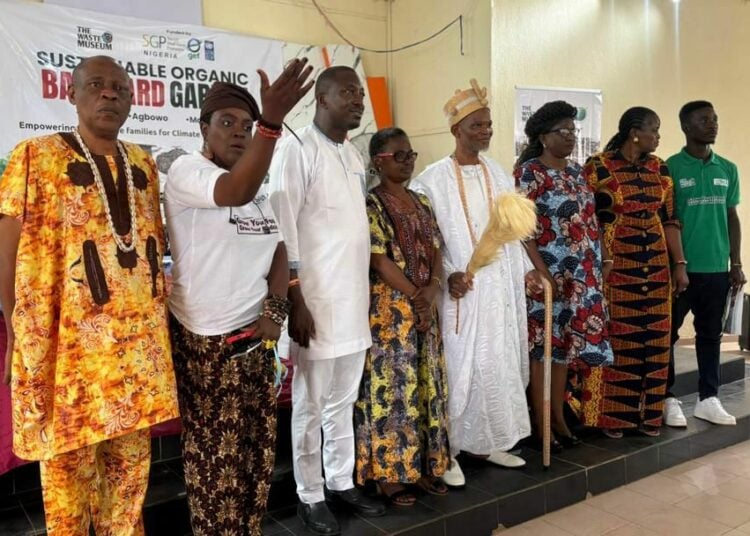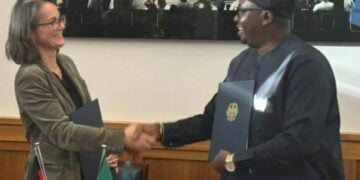Nigerian households have been charged to embrace the practice of backyard farming to grow organic foods with the aid of climate smart agricultural methods.
National Coordinator of UNDP GEF Small Grant Programme, Ibironke Olubamise, gave this charge at a three-day training on Sustainable Organic Backyard Garden held at Agbowo, Apete and Moniya areas of Ibadan, Oyo State capital.
Olubamise charged community leaders to encourage their subjects to embrace backyard garden to transform their lives by living good, eating well, acquiring education to the peak as well as getting grants, stressing that “the opportunities are there.”
Speaking further on the sustainability of the initiative, the national coordinator emphasised that, “If you train me to plant vegetables and I get food from that vegetable, first, I’m getting food that is not chemically groomed; secondly, I’m getting food that I don’t pay for. I get it free at my backyard anytime I want. That alone should be a motivation for people to continue it.
“We hope that the participants will take it important and take it personal and know that this is a transforming experience that they should take for consideration. More so, some of them will get to a situation where they will start selling to other people and when you’re making money, I don’t expect anybody will want to stop.”
For her part, the Founder and Creative Director of Waste Museum, Ibadan, Jumoke Olowookere, assured that the initiative will empower households with the required knowledge and skills to grow their own food in environmentally-friendly, low cost and space efficient ways.
“By turning waste into wealth through composting, organic pest control and reuse of materials, participants will learn to produce fresh vegetables, herbs, and fruits right from their backyards while also contributing to environmental conservation and climate resilience,” Olowookere stated.
A toxicologist at the Department of Chemical Pathology, University of Ibadan, Oluwakemi Ademola Aremu, noted that Africans had been consumers of everything, including other people’s ideologies.
“Unfortunately, this pattern had gone into our food and we’re beginning to develop diseases of the West; a lot of diseases that were not common in Africa before. Definitely, health is linked to nutrition.
“The way to heal the body is through changing people’s patterns of behavior, lifestyle choices. So, I’m so glad talking to people across these communities for three days. Poverty is coming from inability to feed yourself,” she stressed.
Aremu added that the initiative was designed to give real power to the people with skills to cultivate their own organic food right at their backyard, regardless of the available space.
“This one is all about backyard farming. Power to the people; real power and future hope for their children, because when we can grow our food and feed our children, and when our children see that a man can benefit from his own toil, we can see that the esteem of our people, the mental health of our people will increase,” she added.
Participants included Obafemi Jegede, a professor of traditional African medicine at the Institute of African Studies, University of Ibadan.
Jegede commended organisers for empowering families with needed skills to grow organic and harmless foods and herbs which he noted will reduce dependence on chemical-based consumables that were hazardous to health human living and the environment.
Participants at the sessions were trained on soil preparations, seed starting, composting, vertical farming, and snail farming, among others.





